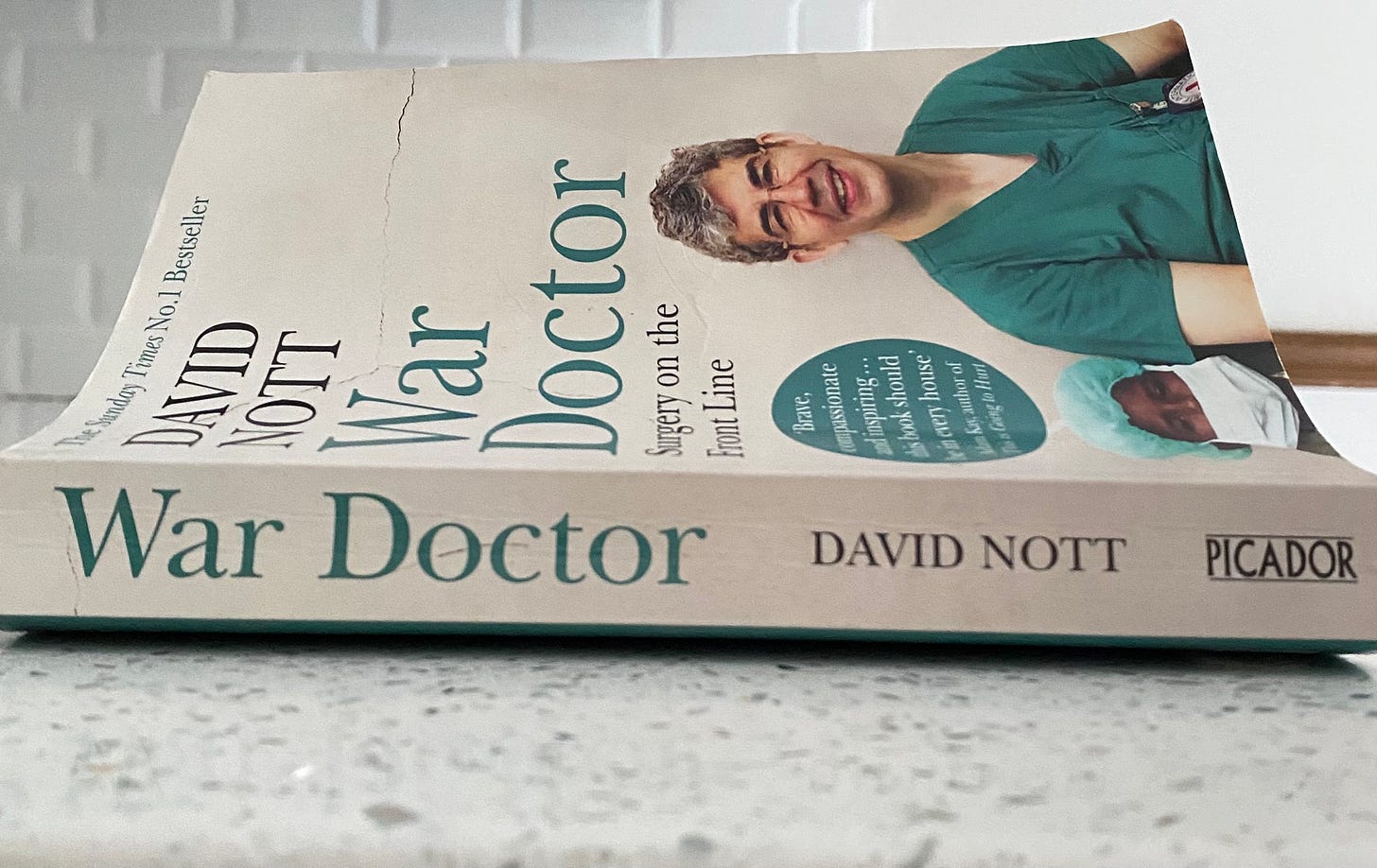War Doctor by David Nott
Trials and tribulations from the frontlines of humanitarian medicine.
“Aleppo was sniper city…the snipers were playing a game…scoring hits on particular parts of the anatomy… [their] new target of choice: pregnant women.”
What’s Inside the Cookie
What makes a “good” person? I think most of us would agree that a “good” person is kind, has integrity, and cares about other people, but where do we draw the line? How kind should you be, how much integrity should you have, and how much should you care? Above all else, how do we test these things? It’s easy to be a “good” person sitting around a full dinner table in an AC room, free from danger and limitation; however, what happens when shit hits the fan and doing the “right” thing is no longer doing the easy thing? In his book War Doctor, trauma surgeon David Nott engages with these questions, as he ventures into war zones, natural disasters, and under-resourced third-world nations to provide care for those who need it most. From Aleppo to Haiti and Egypt, Dr. Nott takes you through his journey around the world, depicting encounters with terrorist groups, surgeries performed on kitchen tables, and struggles to endure the mental and emotional stress that comes with it all. On this journey, he explains the harsh reality of living conditions in austere environments where children die from curable conditions, where fragmentation wounds are the norm, and where pregnant women become sniper targets; furthermore, he exposes our failure to support survivors and refugees of these crises, as well as our failure to combat the inhumane crimes committed against innocent civilians and medical personnel in these settings. If you are looking for a thriller that improves your cultural awareness, widens your worldly view, and jerks some tears out of you in the process, then this book is for you.
“In the UK I might save one person’s life a month, whereas in Syria it had been ten a day. What the hell was I dong here?”
My Take
Growing up in America, it is easy to become narrow-minded and lost amidst the freedoms and luxuries of the developed world. You hear about impoverished nations in Africa and war-torn areas in the Middle East, but none of it really sticks. Surrounded by grocery stores packed to the brim, big houses with white fences, and fancy cars that drive themselves, it is difficult to genuinely understand what it means to struggle. Sure, we face challenges at our jobs, and we encounter conflicts in our relationships, and maybe we work really hard chasing goals in our hobbies, but most of us don’t know what it’s like to be hungry. We don’t know how it feels to watch our parent, sibling, best friend, or child die, not because modern medicine doesn’t have the tools to save them, but because we didn’t have medical resources or personnel available. We don’t understand the danger when government crumbles, the chaos when infrastructure does not exist, or the fear when terrorist militias run the streets. Most of all, we cannot relate to the lack of support and the helplessness that individuals living in austere environments and third-world countries experience on a regular. This book opened my eyes to the world outside of the American dream that I grew up in, showing me the harsh realities that millions around the world face while I sleep in my air-conditioned room, stuff my face at every meal, and spend thousands of dollars on the latest gadgets and gizmos. Dr. Nott’s eloquent narrative, colorful depictions, and passionate anecdotes brought catastrophes around the world to life, putting names and stories to wars and disasters, invoking self-reflection, and encouraging me to be the “best” person that I can be. Considering that this book inspired my aspirations to operate as a humanitarian surgeon myself one day, it is not an over-exaggeration to say that it changed my life.
“Everybody else in the room began making a beeline for the door…heading out of the hospital as fast as they could…I could not leave this little girl to die on her own…I was so sick of seeing badly injured children that I could not bear to see another one and stand idly by.”




